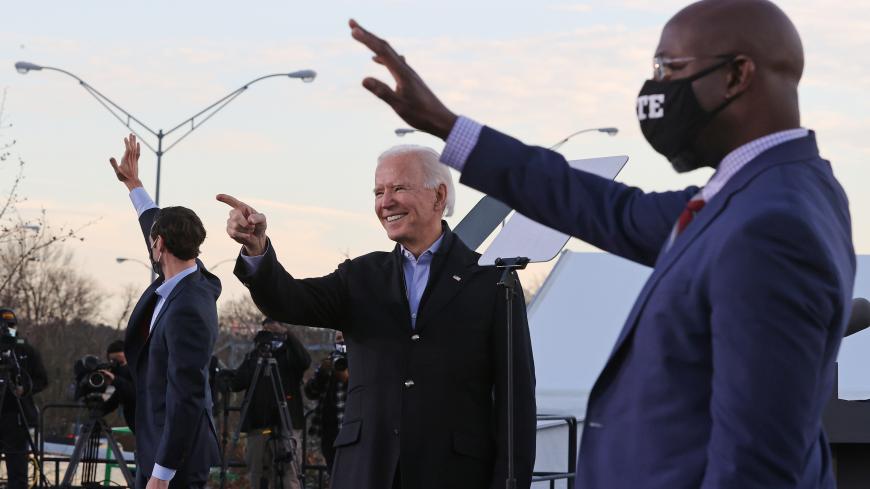The Democratic Party now has a narrow majority in the US Senate following Joe Biden’s inauguration as president Wednesday. The shift from a Republican-controlled chamber will have effects on the Senate Foreign Relations Committee and US policy in the Middle East.
There are 50 Republicans, 48 Democrats and two Independents (who caucus with Democrats). Democrats possess a one-vote majority when taking into account the role of Vice President Kamala Harris, who also serves the role of 'president of the Senate.' This also allows Democrats the majority to claim the chairmanship of committees.



